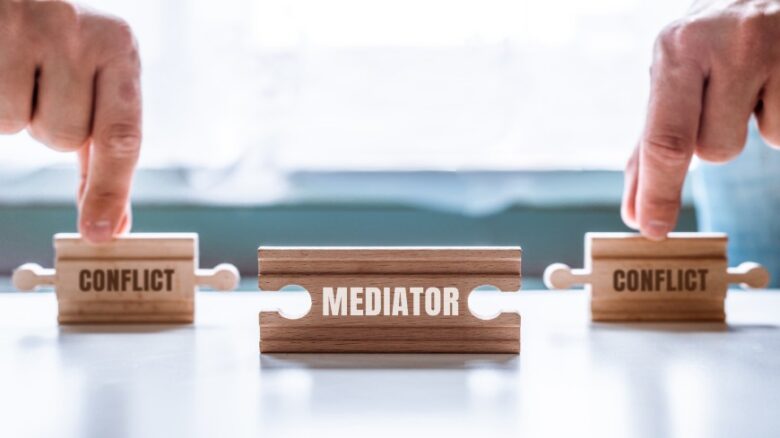Conducting mediation for the resolution of sports disputes is not simple. But you can make it simple by adopting a few transformative principles in how you conduct mediation, which will increase your level of success by many folds. Basically, if we define all of these rules together, you need to be impartial and neutral throughout the mediation process. When you prove that you are not favoring anyone, the complainant and respondent parties can trust you because you would have no stakes, and they can trust that you will not be favoring either party in any way. This also means that you will conduct mediation as your way to personal satisfaction only.
Professional mediators are supposed to be neutral. They ensure that they have no established relationships with any involved parties when anyone seeks them to help in sports mediation. However, in cases where you engage an attorney whom you have hired in the past, that person will responsibly inform the other party upfront about your past relationship with him. In addition to this, he will invite the other party to ask any questions to clarify all the doubts. This will essentially reduce the chances of undermining the final resolution. In addition, the mediator must prove that there is no favoritism towards any side. So it is easier to understand why some mediators reject mediation requests from their past clients because they think mediating in such situations can undermine their past reputation.

In such scenarios, both parties can freely select their mediators. When parties choose their mediators to present their standpoint, they can communicate their perspectives to discover options for dispute resolution. In cases where these two mediators cannot find a way out, they often appoint another mediator to guide discussions, and this third mediator is appointed through mutual negotiations. In this way, the neutral mediator guides the conversation between parties and sees whether settling over a dispute is possible. Ensuring this third mediator’s neutrality and impartiality is a must, as we have already discussed.
More often, the failure to call personal relationships with any party at the start of the mediation process would destroy the authenticity of the final resolution. For example, suppose you are the sports mediator, and you already have a good relationship with the complainant or respondent. In that case, you should call your relationship at the earliest stage or refuse the request for mediation.

The lesson for mediators is that you should prove you are not biased towards any party. Your behavioral postures and conduct should be free from partiality. You also need to confirm your impartiality, ideas, and outcomes from the issue. During the mediation, the mediators need to develop detachment in every way. You cannot disagree or agree with any party. Your job is only to propose solutions. Your behavior and treatment should be consistent as if there is no favoritism present anywhere.
So responsible mediators act like their job is to balance the talk while the session progresses. And the participants will start informing you about their ideas, and you will get the information from your discussions with both parties. This understanding of their standpoints will enable ways to normalize the dispute.

Finally, remember that the mediation session cannot be biased or partial. If any party starts feeling as if there is any sign of bias or favoritism in the mediator, they will be right to leave. And bringing them to the table again is going to get very difficult because proving impartiality will be possible only when you change the mediator. This means that you will not be the mediator they will accept for communications on the next occasion.
In a technical context, it is written in contract terms that they should first mediate before legal proceedings – if a party notices any breach of the agreement terms. So it becomes essential to include mediation clauses within contracts. When a party reaches the court without mediation, the court generally issues an order for them to mediate with the other party.
This order is good from a technical angle. The court gives the order for mediation to let the parties settle the issue themselves. If you do not want to mediate, you can still use this as your way to know the standpoint of the other party. In this way, you will also understand what the court rulings will mean at the end of a legal hearing. This is also true that either respondent or complainant parties do not attend such events when they consider they are on the right side. Instead, they attempt to find loopholes to escape from the mediation proceedings. In such situations, the need is to understand that they will prefer to be absent or, if they come, will be attending to satisfy the order of a court. So, if they show agreements towards mediation, showing impartiality will give them trust in the procedures. But, on the other hand, if the mediator does not show his neutrality, this will provide them a reason to abort the mediation.

If you want to understand how things happen in real life, then according to sports mediation experts at sportsmediationservice.org.nz, when a party sees a dispute, they should inform the other party that they want to resolve it. Of course, mediation will be the first step in this dispute resolution process. So they can both appoint a mediator who is available and willing to work in case direct communications bring no fruit. However, when such mediation occurs under the court order, either the institute or the court can appoint a mediator. But if you are not satisfied with their designated person, tell them about your reservations. So when you cooperate with the mediator and share your opinion on technical matters, even if you are not satisfied with the proceedings, you can continue to understand the standpoints of the other party. This will help you if mediation fails to produce a mutually agreeable agreement at later stages. Then, of course, either party can refuse to sign the final agreements and return to the court. However, after a mediation session, the fee payable to the mediator divides between two half invoices and is payable by the complainant and respondent parties.

